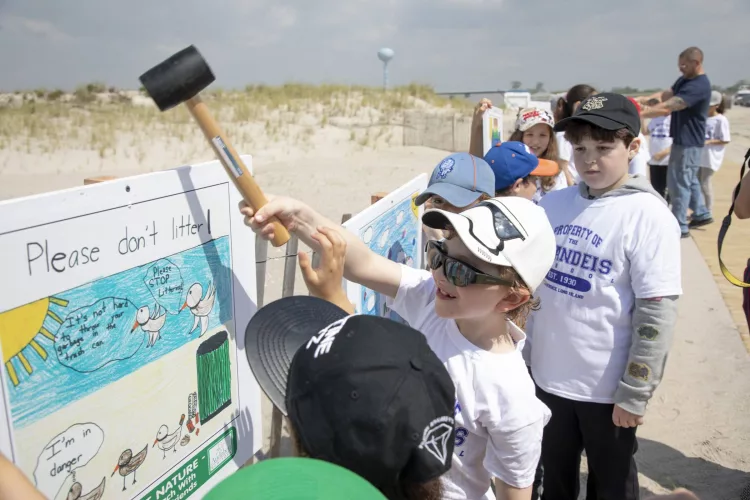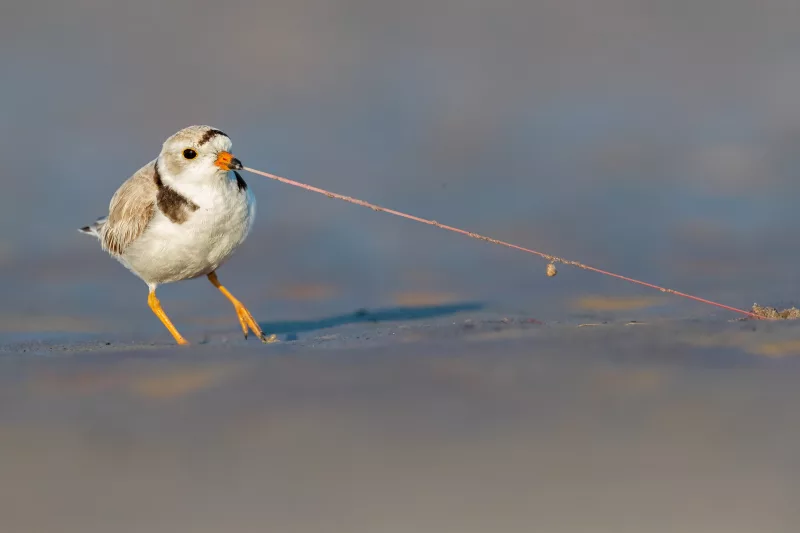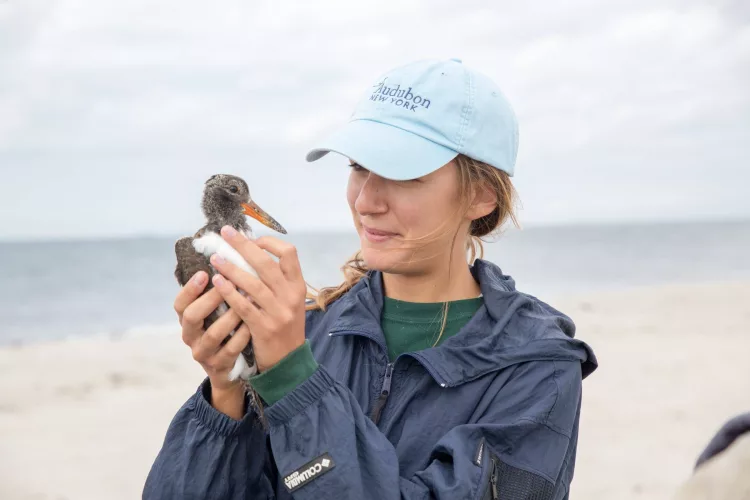
By Josey Gardner
Summertime is here, and that means it’s time to get outside. Outdoor recreation is only getting more and more popular–the outdoor recreation economy is booming, and national and state park visitation numbers are rising. Nature is a place of fun, entertainment, and genuine connection where we make some of our worst and best memories. With all of this love for outdoor activities, you’d think that the outdoors would be more protected than ever before. However, this is not the case; in fact, the higher visitation numbers a location has, the more likely it is for that location/landscape to deteriorate from human-related causes such as vandalism and littering. While many of us have teachers, friends, and coaches who show us how to hike, rock climb, water ski, and more, we often don’t have someone showing us how to recreate responsibility by being a steward of the environment. However, the future of the hobbies we all love so much depends on learning how to do just that.
Responsible outdoor recreation comes when you realize that the outdoors aren’t there solely for your recreationwe are sharing the outdoor space, and while our hobbies definitely have a place there, they are not the only things there. Our hobbies are just one of many reasons why we love the outdoors. Other reasons include the beauty of an undeveloped landscape, land that provides the food we eat, and even just the simple fact that the environment is our home! We all live there! And we are sharing that home with millions of other species. Recreating responsibility means sharing the space you are recreating in, and respecting that other creatures and hobbies belong in an outdoor space just as much as you and your hobbies do.
The National Audubon Society has initiatives that encourage responsible recreation as we share the environment with the birds around us. “Share the Shore” is one such initiative. A vital part of the nationwide Coastal Bird Stewardship Program, this initiative exists to protect the many species of birds that lay eggs and raise young on the shore. In Connecticut, we will be sharing the beach with birds such as the American Oystercatcher and the Piping Plover. The population of shorebirds in North America has declined by 70% since 1970, so sharing the shore is more important than ever.
What does sharing the shore mean, and how can you share the shore? For one, always respect closure signs. Staff and volunteers with the National Audubon Society spend many hours scoping out breeding grounds along the shore, and placing signs that direct beach-goers to stay away from certain areas where shorebirds are congregating. Respecting those signs and closures is so important. This includes our furry friends as well–keeping dogs on leashes and away from beaches where they are not permitted is crucial to responsible outdoor recreation. Human feet and paws alike can easily trample fragile and endangered eggs, especially when we are running, playing a sport, and just not paying attention to our surroundings. Eggs are often camouflaged and have evolved to blend in with their environment as a way to hide them from predators, so we often don’t see them. Even walking “carefully” is a risk. It’s better to simply stay away from closed areas. Do not fly drones and other loud objects near nesting grounds–many birds are scared by loud noises, and drones can often look like hawks and other predators to smaller birds on the ground. Keeping litter in your pocket until you can dispose of it properly, volunteering with the National Audubon Society and becoming a Coastal Bird Steward, educating others about shorebirds–there are many ways that we can share the shore so that both humans and endangered birds can coexist within the same ecosystem.
What happens when we don’t share, and when we don’t recreate responsibly? Oftentimes, the environment we love so much collapses. Imagine you’re a hiker with a favorite forest trail, but the animals in that forest have been slowly disappearing; where you once saw trees, you now only see noxious weeds and vines that were once eaten and controlled by those animals that disappeared, and where you once heard chirping birds, everything is silent. Imagine you’re a fisherman with a favorite spot at a river, but climate change has made the area hotter and hotter every year and the river gets lower and lower; five years ago, you were able to catch f ish regularly, now it is a rare thing to get a single bite. Imagine you’re a boater who loves water skiing on the lake or the ocean; you take a fall off your skis and as you’re waiting in the water for the boat to make its way back, you see several pieces of trash floating past you. None of us want these scenarios. Protecting the environment is necessary for our survival and our fun.
Audubon’s Coastal Bird Stewardship Program has been finding the balance between conservation and recreation, and now protects over 500 sites, and engages more than 1,500 volunteers and 250 partner organizations. The benefits from the program are significant in 2021, the Audubon Science team examined close to 400 sites managed for birds, and discovered that the populations of four species (Black Skimmer, Brown Pelican, Least Tern, and Piping Plover) grew 2 to 34 times faster at sites that had regular stewards and volunteers compared to sites that were protected but not actively stewarded. When we protect and maintain these ecosystems, it keeps them around longer for us to live and recreate in.
Responsible recreation isn’t just for birding, and it isn’t just for beaches. Learning the seven Leave No Trace principles is vital knowledge for everyone who has ever stepped foot outside (which is all of us!). No matter what your outdoor hobby is, remember to always: 1) plan ahead and prepare, 2) travel and camp on durable surfaces, 3) dispose of waste properly–if you pack it in, pack it out, 4) leave what you find, 5) minimize campfire impacts, 6) respect wildlife, and 7) be considerate of others. If you’re an avid hiker, learn more about hiking etiquette and how to respect the space of both plants and wildlife. If you’re a rock climber, you can become a steward or volunteer at your local crag. If you’re a boater, remember to share the shore and respect the delicate water ecosystem you’re recreating in.
The environment is needed for more than just entertainment and beauty–it’s not just a place to do our hobbies and then leave. We all live here, among the same fields, cliffs, beaches, and forests that we are recreating in; and we share that home with millions of other species. Be more than just a birder, hiker, rock climber, boater, etcbe a steward of whatever habitat you live and play in. We need more than just satisfactory landscapes for recreation, and we need more than just recreation to live–we need healthy habitats and thriving ecosystems. Reach out to your local Audubon chapter or center, as well as other local conservation organizations, to learn how you can be a better steward of the environment this summer.
Josey Gardner is the Sr. Center Assistant at the Greenwich Audubon Center and an outdoor enthusiast. She has worked in various outdoor fields, from nonprofit conservation to parks and recreation.







